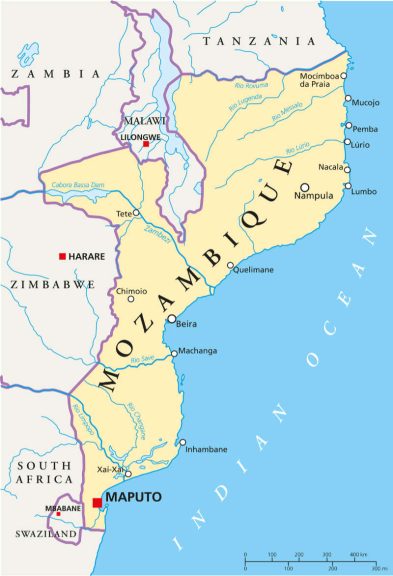After completion of the planned scientific research work in the Exclusive Economic Zones (EEZ) of several Northwest African countries, the Russian Scientific Research Vessel (NIS) STM Atlantis has completed a voyage to the southwestern Indian Ocean to continue work in Mozambique’s EEZ, according to the All-Russian Research Institute of Fisheries and Oceanography (VNIRO).
An Exclusive Economic Zone (EEZ), as defined by the 1982 United Nations Convention on the Law of the Sea, is a maritime area extending 200 nautical miles (370 km) from a country’s coastline where that nation has special rights regarding exploration and exploitation of marine resources. Fishing and other activities are only permitted with the specific approval of the country concerned.
The STM Atlantis stopped for fuel on March 11-12 at South Africa’s Durban Port and has now docked at Mozambique’s Maputo Port. Experts from the Atlantic Branch of VNIRO and the Institute of Oceanography of Mozambique have been meeting to coordinate a joint research program. The parties discussed the tasks, areas and stages of work, methods of surveying and performing hydrological and hydrobiological stations, trawling schemes, features of sampling and recording samples, and the transfer of scientific materials after the completion of the research.

STM Atlantis will carry out joint research to assess the biomass of bottom bioresources on the marine continental shelf of Mozambique. The national EEZ covers an area of approximately 508,092 square kilometers.
The Great African Expedition started from Kaliningrad on August 21, 2024 and will last until the beginning of 2026. The expedition is being carried out on two scientific research vessels of the All-Russian Research Institute of Fisheries and Oceanography (VNIRO) – Atlantis and Atlantniro. In total, Russian scientists are exploring the coastal zones of 18 African countries.
Further Reading

 Русский
Русский














